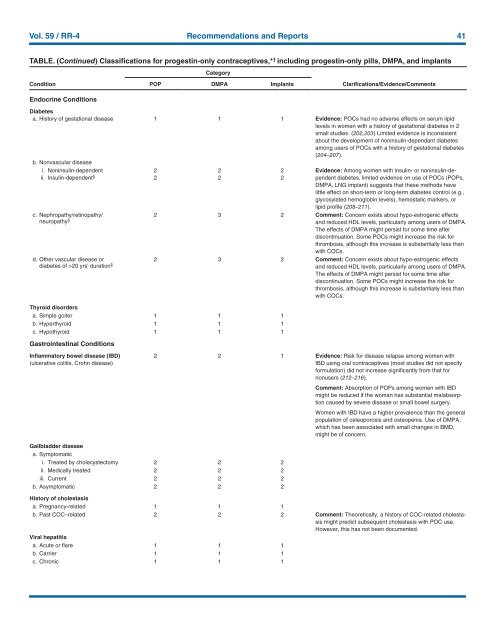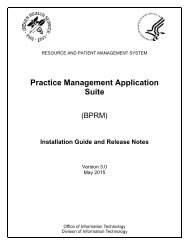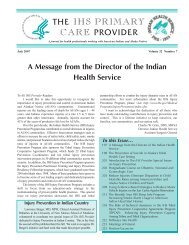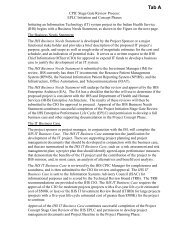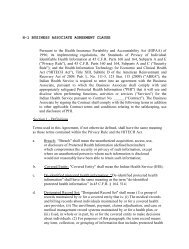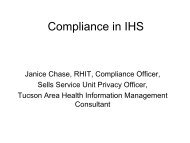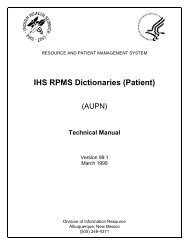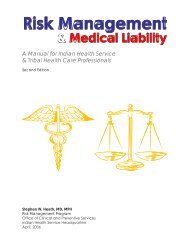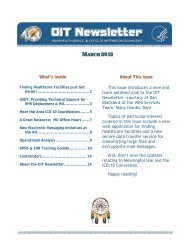CDC Article-US Medical Eligibility Criteria for Contraceptive Use, 2010
CDC Article-US Medical Eligibility Criteria for Contraceptive Use, 2010
CDC Article-US Medical Eligibility Criteria for Contraceptive Use, 2010
Create successful ePaper yourself
Turn your PDF publications into a flip-book with our unique Google optimized e-Paper software.
Vol. 59 / RR-4 Recommendations and Reports 41<br />
TABLE. (Continued) Classifications <strong>for</strong> progestin-only contraceptives,* † including progestin-only pills, DMPA, and implants<br />
Category<br />
Condition<br />
Endocrine Conditions<br />
POP DMPA Implants<br />
Clarifications/Evidence/Comments<br />
Diabetes<br />
a. History of gestational disease 1 1 1 Evidence: POCs had no adverse effects on serum lipid<br />
levels in women with a history of gestational diabetes in 2<br />
small studies. (202,203) Limited evidence is inconsistent<br />
about the development of noninsulin-dependant diabetes<br />
among users of POCs with a history of gestational diabetes<br />
(204–207).<br />
b. Nonvascular disease<br />
i. Noninsulin-dependent 2 2 2 Evidence: Among women with insulin- or noninsulin-dependent<br />
ii. Insulin-dependent § 2 2 2<br />
diabetes, limited evidence on use of POCs (POPs,<br />
DMPA, LNG implant) suggests that these methods have<br />
little effect on short-term or long-term diabetes control (e.g.,<br />
glycosylated hemoglobin levels), hemostatic markers, or<br />
lipid profile (208–211).<br />
c. Nephropathy/retinopathy/<br />
neuropathy § 2 3 2 Comment: Concern exists about hypo-estrogenic effects<br />
and reduced HDL levels, particularly among users of DMPA.<br />
The effects of DMPA might persist <strong>for</strong> some time after<br />
discontinuation. Some POCs might increase the risk <strong>for</strong><br />
thrombosis, although this increase is substantially less than<br />
with COCs.<br />
d. Other vascular disease or<br />
diabetes of >20 yrs’ duration § 2 3 2 Comment: Concern exists about hypo-estrogenic effects<br />
and reduced HDL levels, particularly among users of DMPA.<br />
The effects of DMPA might persist <strong>for</strong> some time after<br />
discontinuation. Some POCs might increase the risk <strong>for</strong><br />
thrombosis, although this increase is substantially less than<br />
with COCs.<br />
Thyroid disorders<br />
a. Simple goiter 1 1 1<br />
b. Hyperthyroid 1 1 1<br />
c. Hypothyroid 1 1 1<br />
Gastrointestinal Conditions<br />
Inflammatory bowel disease (IBD)<br />
(ulcerative colitis, Crohn disease)<br />
2 2 1 Evidence: Risk <strong>for</strong> disease relapse among women with<br />
IBD using oral contraceptives (most studies did not specify<br />
<strong>for</strong>mulation) did not increase significantly from that <strong>for</strong><br />
nonusers (212–216).<br />
Comment: Absorption of POPs among women with IBD<br />
might be reduced if the woman has substantial malabsorption<br />
caused by severe disease or small bowel surgery.<br />
Women with IBD have a higher prevalence than the general<br />
population of osteoporosis and osteopenia. <strong>Use</strong> of DMPA,<br />
which has been associated with small changes in BMD,<br />
might be of concern.<br />
Gallbladder disease<br />
a. Symptomatic<br />
i. Treated by cholecystectomy 2 2 2<br />
ii. <strong>Medical</strong>ly treated 2 2 2<br />
iii. Current 2 2 2<br />
b. Asymptomatic 2 2 2<br />
History of cholestasis<br />
a. Pregnancy-related 1 1 1<br />
b. Past COC–related 2 2 2 Comment: Theoretically, a history of COC-related cholestasis<br />
might predict subsequent cholestasis with POC use.<br />
However, this has not been documented.<br />
Viral hepatitis<br />
a. Acute or flare 1 1 1<br />
b. Carrier 1 1 1<br />
c. Chronic 1 1 1


